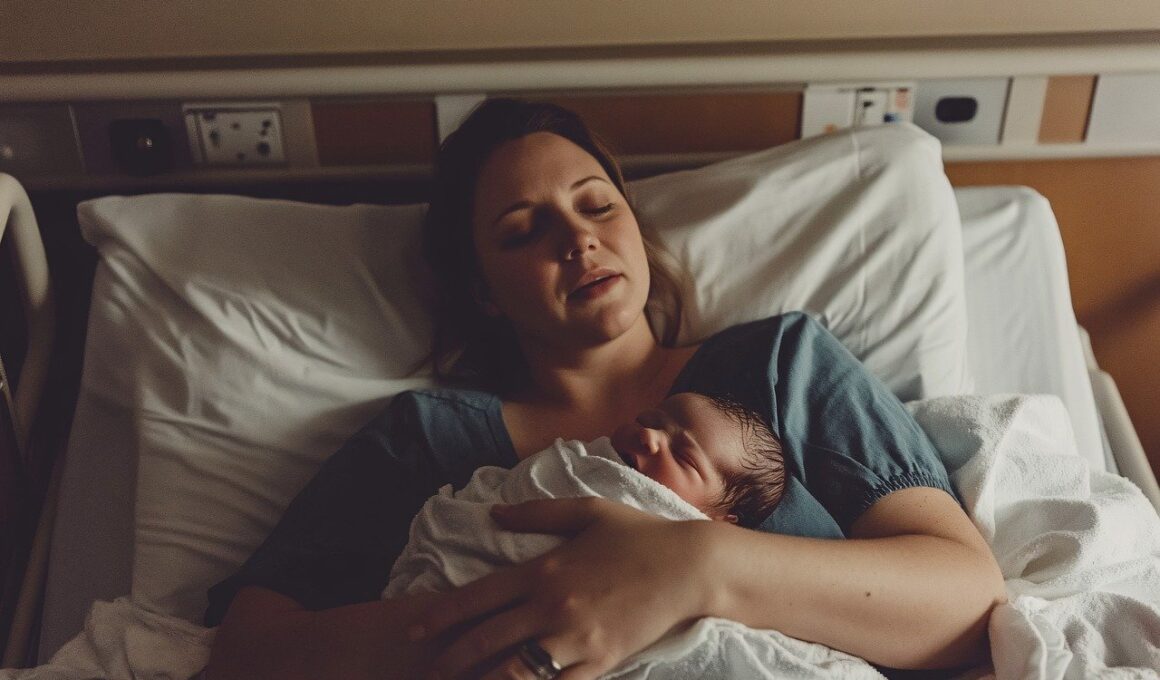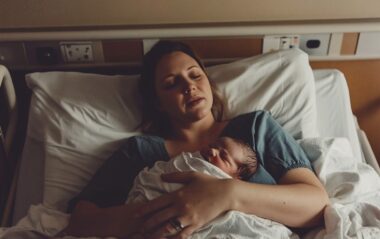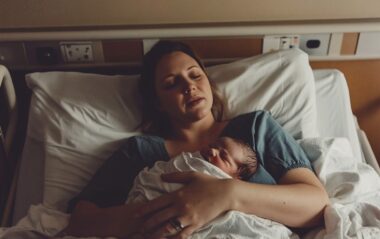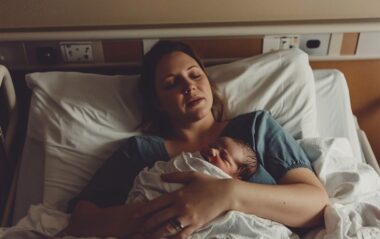Doctor’s Advice on Resuming Physical Activity After Pregnancy Complications
Postpartum fitness is an essential aspect of recovery for new mothers, especially after pregnancy complications. Before resuming physical activity, it’s crucial to seek medical clearance from your healthcare provider. This step ensures you are in the best health to engage in physical activities safely. Pregnancy complications, such as preeclampsia or gestational diabetes, may lead to concerns that need to be addressed prior to starting an exercise program. Your doctor can assess your individual situation and offer tailored advice on when it’s suitable to resume workouts, taking into account your recovery journey. The goal is to safely rebuild strength, enhance overall well-being, and adjust your fitness routine based on your specific needs. Discussing your fitness goals with your healthcare provider is vital. They can recommend modifications or specific types of exercise that support your healing efforts. Additionally, their guidance allows you to develop a gradual approach to increasing physical activity. Listening to your body is crucial, too. If you experience any pain or discomfort at any point, reach out to your physician for further evaluation.
Getting medical clearance should always be done before you start any postpartum fitness program, especially following complications. During this consultation, be open about any symptoms you experienced during pregnancy and your current health status. Your healthcare provider will evaluate not just your physical health but also mental well-being. The postpartum period can be taxing both physically and emotionally, therefore a holistic approach is necessary. Your doctor may conduct a series of tests or assessments to ensure you are up to the recommended level of fitness. Factors like blood pressure, heart rate, and overall stamina can indicate readiness for exercise. They will likely discuss your lifestyle, previous exercise habits, and any potential barriers you might face in returning to physical activity. Nutrition is also a vital aspect of postpartum recovery. Discuss dietary adjustments that can complement your fitness regime and enhance your recovery. A balanced diet helps provide essential nutrients needed during this critical time. Engaging in small, manageable exercise routines can gradually lead you back to more vigorous activities while ensuring that your body heals appropriately.
Understanding Your Body’s Signals
Understanding your body’s signals is imperative when navigating the world of postpartum fitness. After any pregnancy complication, your body will be undergoing several changes as it heals and recovers. Learning to listen to these cues can guide you in determining when to engage in physical activity and when to take a step back. Fatigue, pain, or any unusual symptoms should not be overlooked. It is crucial that you reward your body with rest and recovery time as needed. Some mothers might feel a rush of energy after childbirth, eager to resume their pre-pregnancy lifestyle. However, it is vital to keep in mind that your body has undergone significant transformations and needs time to adapt. Start slowly with low-impact activities like walking or gentle stretching after you receive medical clearance. As you progress, moderate exercise may become more attainable, but always ensure you adhere to your doctor’s recommendations. Developing a solid support system, including personal trainers or postpartum fitness specialists, can also help you stay motivated and on track towards your fitness journey.
The importance of a supportive environment cannot be overstated when it comes to postpartum fitness. Your emotional well-being can greatly influence your physical health during recovery. Consider surrounding yourself with understanding family members and friends who can provide encouragement throughout your fitness journey. Joining postpartum fitness classes can be an excellent way to meet other mothers facing similar challenges. Exercising in a group setting fosters accountability while offering emotional support. These classes often cater to individual needs and may feature modifications for varying fitness levels. Online fitness communities offer another layer of support, providing tips and resources that you can access conveniently. Utilize social media platforms or video tutorials that focus on safe postpartum exercises tailored for recovery. Another avenue includes reaching out to a specialized personal trainer experienced in postpartum fitness. They can provide personalized guidance and workout routines that prioritize rebuilding strength and endurance. This tailored approach can enhance your exercise experience and keep you motivated throughout your recovery journey. Holistic well-being will positively influence your fitness path.
Choosing the Right Exercise
Choosing the right exercises is essential sometimes overlooked during the postpartum period. Safe routines tailored to your current fitness level and recovery stage can significantly affect your transition back to activity. Low-impact exercises, such as walking, pelvic floor exercises, and gentle stretching, are excellent starting points. Gradually increase the intensity as your strength improves, incorporating activities such as cycling or swimming. Resistance training can also help rebuild muscle; however, consult your doctor before pursuing any high-impact exercises. Additionally, be cautious with abdominal workouts. Many new mothers experience diastasis recti, a separation of abdominal muscles that needs attention. Avoid traditional crunches and consider alternative techniques that are safe for your condition. Yoga and Pilates can also be beneficial, promoting mind-body connection while enhancing core strength. Personal trainers often specialize in postpartum workouts and can guide the selection of appropriate exercises. Remember to focus on gradual progress rather than rapid changes. Celebrate small victories during your fitness journey to maintain motivation. Regular evaluations with your healthcare provider will keep your goals aligned with your health requirements.
Maintaining consistency is vital, although challenging, during postpartum fitness. Juggling responsibilities such as caring for your newborn can lead to missed workouts. Adjusting your schedule for fitness can help create a routine that works for you. Setting small, achievable goals can transform your fitness journey into a rewarding experience. Aim for shorter sessions spread throughout the week rather than long, exhausting workouts. Any movement counts, whether it’s a brisk walk with your baby’s stroller or quick exercises during nap time. Use a fitness app or journal to track your progress. This can motivate you while providing positive reinforcement. Engage family members in your exercise routine; they can help with childcare or join you in physical activities. Building a routine that incorporates fitness into daily life encourages sustainability. Before long, the process will become a seamless part of your week, contributing positively to both your mental and physical well-being. Do not forget to acknowledge and embrace your journey, celebrating milestones made along the way, as it is essential not to focus solely on physical appearance but also on overall health.
Consulting a Specialist
Consulting a healthcare specialist can enhance your postpartum fitness experience greatly. Often, general practitioners may not cover specific concerns related to postpartum recovery. A pelvic floor therapist or a certified postpartum fitness expert can play a vital role in addressing individual needs. Such specialists can evaluate your physical condition, focusing on areas like core stability and pelvic health. They can create a personalized exercise plan that coincides with your recovery stage. Nutritionists specializing in postpartum health can also provide valuable guidance on dietary choices that support fitness and recovery. They can suggest balanced meal plans focused on healing and energy levels, ensuring that your nutritional needs are met. The collaboration between healthcare professionals offers a comprehensive approach to your recovery. When seeking expert advice, don’t hesitate to ask questions or express concerns regarding your postpartum fitness journey. Your dedication to understanding your body and its needs will pave the way for a smoother transition back into an active lifestyle. Balancing support and professional advice will create a well-rounded approach to your recovery.
In conclusion, seeking medical clearance before engaging in postpartum fitness after pregnancy complications is essential. By understanding your body’s signals and choosing the right exercises, you can navigate your fitness journey safely. Embrace the importance of a supportive environment to stay consistent and motivated. Consulting specialists for tailored advice will enrich your experience. Remember, the focus should not solely be on physical appearance but overall well-being. Each mother’s journey varies, and it is vital to prioritize what feels right for you as an individual. As you engage in physical activity, reflect on your progress, celebrate small wins, and keep fostering a positive relationship with fitness. Emphasizing health and recovery will pave the way for a lasting and fulfilling postpartum fitness path. This dedication and self-care can also positively influence your baby’s life. Overall, by making informed choices and developing a personalized approach guided by professionals, you can engage in postpartum fitness meaningfully. Allow yourself grace, acknowledge your achievements, and promote wellness as you navigate this transformative stage of motherhood.





